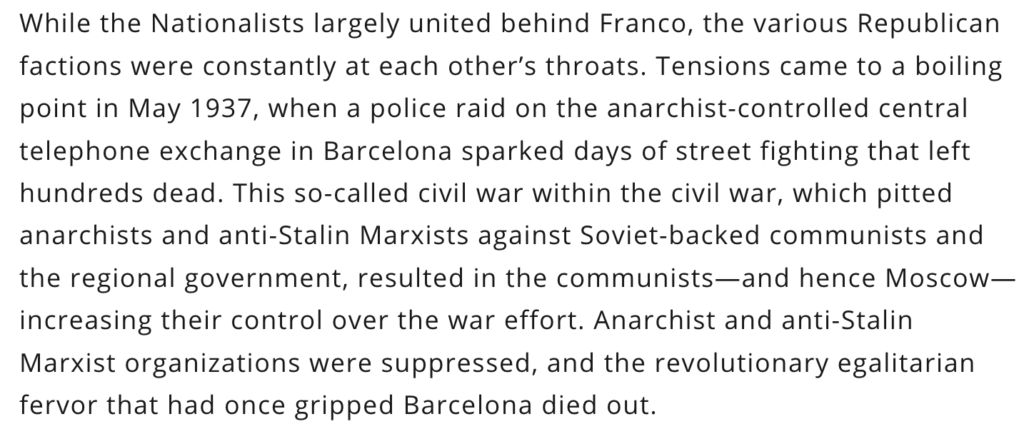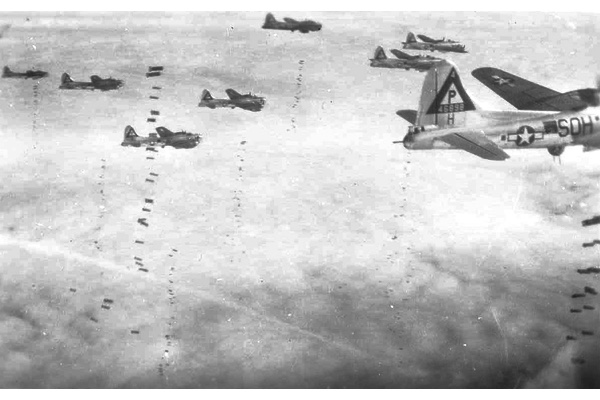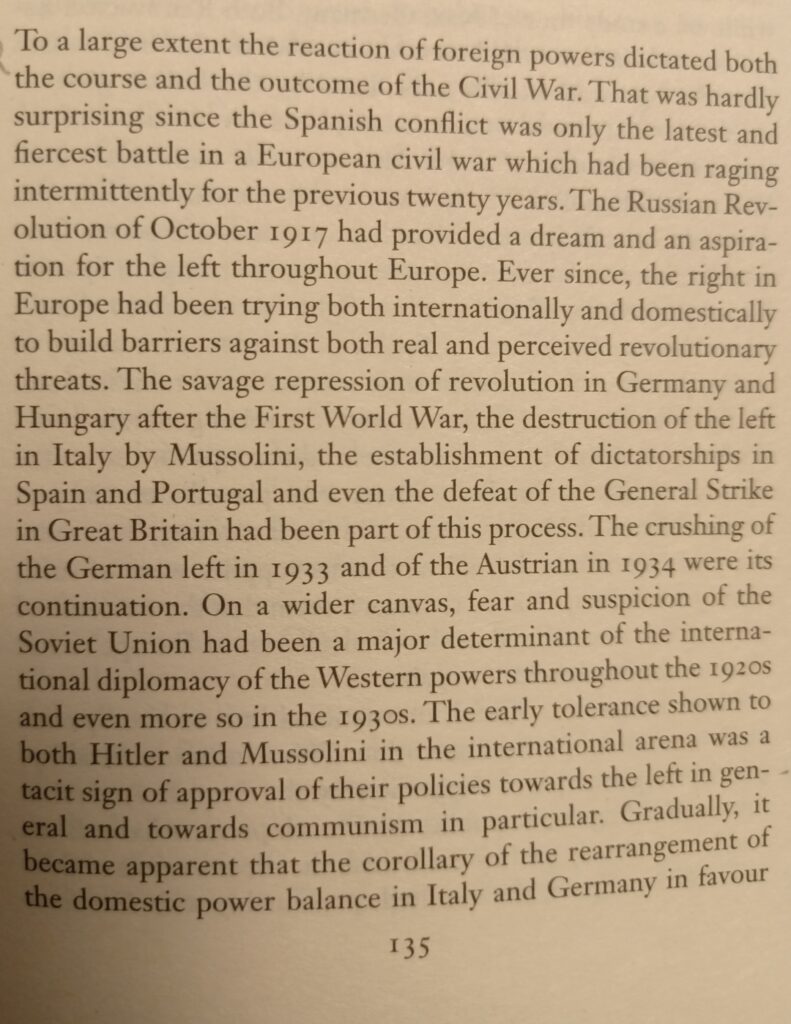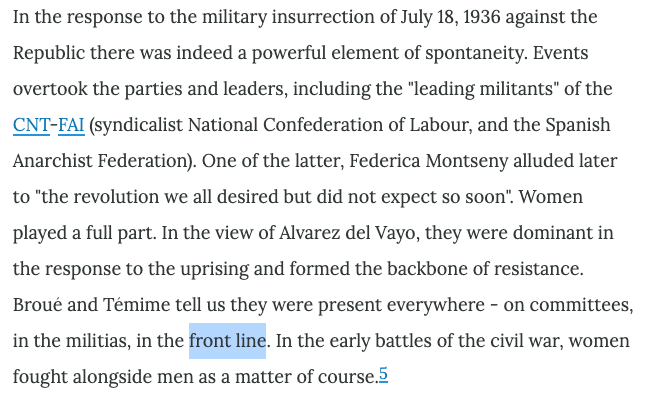- Timeline
- Who fought who?
- General Resources
- Why did the Republicans lose?
- Why did the Nationalists win?
- Foreign Powers
- Human and Economic Resources
- Ideology
- Women
- Guerrilla Warfare
Who fought who?
Republicans
According to Michael Siedman, the Republicans outnumbered the Nationalists by ten to one at the outbreak of war. This was reduced to four to one by 1937.
- Republicans, or loyalists,
- A Popular Front composed of liberals, Socialists, Trotskyites, Stalinists (both Communists but also rivals), and anarchists.
- CNT – anarchist labour union
- UGT – main Spanish trade union
- PSOE – Socialist political party
- Armed Forces – some remained loyal to the Republic.
- International Brigade
- Basque and Catalan nationalists
Nationalists sometimes referred to as insurgents or rebels
- Majority of the Armed Forces
- Africanistas (Spanish Foreign Legion)
- Italian, German and Portuguese governments
- CEDA – Catholic and Conservative political party
General Resources
Francisco Franco Part 1: Spain’s Buried Past
Francisco Franco Part 2: The ‘Little Major’ Terrorises Africa
Francisco Franco Part 3: The Civil War and the White Terror
Why did the ‘Republicans’ lose?
Some of these bullet points are taken from Michael Alpert’s The Clash of Spanish Armies: Contrasting Ways of War in Spain, 1936-39, War in History, July 1999, Vol. 6, No. 3, pp.331-351.
Why did the ‘Republicans’ lose?
- Non-intervention
- Britain wanted Franco to win the war initially. It had business interests in Spain and thought that the Nationalists would bring stability to the country to protect them. They also did not want to take part in another European war, the memories of the First World War were still vivid in British society. As part of their support for Franco, they may have given aid to Portugal, their long-term ally, whose government was sympathetic to the Nationalists.
- Paul Preston argues that had Britain entered into the Spanish Civil War on the side of the Republicans, and Winston Churchil the future prime minister argued they should, it would have had a huge impact on how much Italy and Germany were prepared to fight (the British Royal Navy could stop many Italian supplies for example) and may have prevented the Second World War.
2. Soviet intervention
- The government was divided in how to fight the war and it depended on foreign aid too much. (Alpert)
- Nationalist naval forces furiously attacked Republican merchant shipping, whereas it appeared that the numerically superior Republican forces were only focused on protection via escorts. Perhaps this was because the Soviet naval attached, Captain Kuznetzov, was influential in making them protect supplies from his country. (Alpert)
- A key problem for the Republicans was that their supply routes (from the Soviet Union) were more difficult than those of the Nationalists (from Italy and Germany). (Alpert)

- Soviet aircraft did not improve, unlike those from Italy and Germany for the Nationalists. (Alpert)
- Finally, the Soviet purges may have prevented its officers from fully developing any combined-arms offensive doctrine and using it in Spain. Marshal Tukachevsky, the officer behind the Soviet Deep Battle military doctrine, was executed in the purges. It was therefore less likely that other officers would use this strategy out of fear of appearing loyal to Tukachevsky. (Alpert)
3. Foreign Powers
- The Republic were given unreliable aircraft from France; although the planes themselves were fine, the armaments were not fitted correctly so could not be used. (Alpert)
4. Disunity

- The Basque region and the government argued over who had command over their armed forces, the former assumed command and because of the distance from Madrid, it was difficult for the government to overturn this. (Alpert)
- The Republican bureaucracy was incompetent, divided by politics and impeded by indiscipline and distrust. (Alpert)
5. International Brigade
- This group may have had a lot of media coverage at the time but they were too small to have any real impact on the war. They were also inexperienced and sometimes ill-trained.
6. Strategy
- Their navy did not restrict the Nationalist supply lines, they were fearful of antagonising powers such as Britain and France if their blockade had an impact on international trade. (Alpert)
- Republican aircraft were unable to prevent the Nationalist airlift from Morocco to the mainland. Both German (especially Heinkel-51 fighters) and Italian (Savoia Marchetti-81 bombers) were important in the airlift. (Alpert)
- Both sides had commanders who had read about the advancements in armoured warfare (e.g. blitzkrieg) but it was the Nationalists who used them more. One example was when they attacked a defensive ring around Bilbao in 1937. It was attacked on a narrow front at a weak point, with both artillery and air power bombarding it before ground troops moving through. These may demonstrate the German influence on the Nationalist strategy and tactics. (Alpert)
- However, the Nationalists did not always succeed. One example was the Battle of Guadalajara in 1937, four Italian mechanised divisions were defeated as they had moved without air or artillery cover. Yet this was a pyrrhic victory as Franco learned the value of support, winning at Santander (1937), Aragon (1938) and Catalonia (1938-39) as a result. (Alpert)
Why did the Nationalists win?
Why did the Nationalists win?
According to Helen Graham, albeit looking back on the war, it can be argued that it was inevitable that the Nationalists would win the war. They had the support of Italy, Germany and Portugal and had the guarantee that Britain and France would not help the Republicans. the only surprise was that the Left were able to sustain the war for so long.
- Spanish Army
- The bulk of the Spanish Army was on the side of the Nationalists.
- Africanistas
- With regards to the armies, Franco’s forces were more disciplined and professional, perhaps because of their experience in Morocco, than their Republican counterparts. Alpert adds that other reasons could be that the latter were influenced by the French military doctrine of positional defence whereas the Nationalists were more aggressive and open to movement…a German influence? (Alpert)
- Foreign Powers
- Germany wanted to assist a nationalist cause in a short war, experimenting with its weaponry at the same time. Its aerial assistance was instrumental in achieving air superiority over the Republicans during the war. They provided the M-109 fighter aircraft and the Italians supplied the Fiat CR-32. The Soviet aircraft were very good but they did not send as many as Franco’s allies. This shortage was particularly felt in 1938 and their hope that Britain and France would offer assistance was shattered when the Munich Conference demonstrated their reluctance to adopt an aggressive foreign policy with Germany. (Alpert)
- Furthermore, the Soviets did have the ability to send more aircraft but only chose to in 1939, this was too late to have an impact on the war. (Alpert)
- Franco’s air force was also helped by the professional training of the German pilots. (Alpert)
- Artillery, particularly the German 88-mm anti-aircraft guns, was decisive in many battles, especially when used in combination with air power.
- Paul Preston argues that Italy and Germany entered into the war to weaken Britain and France. In this, they were successful.
- Germany threatened the Republic to abandon their naval blockade, which they did owing to a lack of support from Britain and other countries. Alpert argues that it appears through Republican memoirs that their use of aerial and naval power was indecisive and confusing. Consequently, Franco’s imports were never really interfered with. Moreover, Franco’s naval forces bombed enemy merchant ships and consequently limited their supplies. The situation was worsened because Franco was able to acquire his war material on credit whereas the Republic was forced to pay with gold (from the USSR) and was further restricted in purchasing arms because of the Non-Intervention Pact of 1936. (Alpert)
- Strategy
- Their air power and harassment of infantry from the air was effective. They also were far more successful with their strategy of carpet bombing (Alpert). The image below shows you an example of the US airforce carpet bombing in 1944, aimed at destroying a large area.

- A good example of carpet bombing was at Guernica in 1937. The Condor Legion bombed the town and caused lots of casualties which are still disputed today. Importantly, this attack had a significant impact on Republican morale. The Italian airforce also heavily bombed Barcelona in 1938.
- Their concentrated artillery played a decisive role. (Alpert)
- The leadership was centralised, demonstrating that an efficient dictatorship is more effective in managing a war. Franco’s Nationalists were authoritarian with all aspects of life being military controlled. (Alpert)
Foreign Powers
See Foreign Powers in the previous sections too.
Communism and the USSR
by Lisa A. Kirschenbaum, International Communism and the Spanish Civil War
- The USSR was seen as a safe haven for Spanish communists to leave their children so they could fight the war, Rivera Sanchez was one such mother who did this.
- There were clandestine (secret) training schools for international revolutionaries in Moscow. These would provide recruits for the International Brigade, aimed at spreading the ideology of communism and to understand the world with Soviet eyes. The most prestigious was the Lenin School. The Bolsheviks wanted to remake the world and communism was the ideology to do this. Comintern (Communist International) was the organisation in charge of this operation – it had sixty-five parties across six continents by 1935.
- The 1936 coup d’etat could have been defeated in its infancy if it did not receive support from Hitler and Mussolini – fourteen thousand Spanish and Moroccan troops were transported (initially trapped there) across the Straits of Gibraltar to Spain by Italian and German aircraft.
- These troops used similar tactics to those used in Morocco and were aided by up to seventy thousand Italian soldiers, hundreds of artillery pieces, tanks, and aircraft. In particular, the Condor Legion, bombers from Wehrmacht, gave air support and bombed targets such as Guernica to aid the Nationalists.
- During the war, the USSR was seen to be the saviour of democracy (Soviet propaganda therefore effective), standing up to the fascists. This helped attract support for the International Brigade.
- Republicans accepted Soviet aid reluctantly, they knew the West would not approve and be less likely to offer support themselves.
- Arguably, the USSR did not want to prevent the Nationalists taking control of Spain, but instead wanted a communist country.

Human and Economic Resources
- As stated earlier, the USSR gave the Republicans military aid. This was generally weaponry but there were also military personnel too. However, the weapons varied in quality, from a small number of excellent tanks to virtually obsolete rifles from the Russo-Japanese and First World wars. As there were so many different types of weaponry, acquiring the correct ammunition was far from easy and this limited their use.
Ideology
- The Left was generally disunited during the war whereas the Right were not. For example, the Left comprised the anarchists, communists, socialists and the independence movements. The anarchists followed the ideas of Mikhail Bakunin.

- This meant that they did not accept any influence from Comintern or the communists as they preached centralised control.
Women
Women are generally ignored in warfare but they were prominent in the Spanish Civil War.
- Prior to the war, their work was hard and poorly paid. Their wages were lower than that of men, although the figures differed according to the regions.
- The Republican constitution of 1931 brought equal voting (aged 23). Divorce became legal and more women took part in politics.
- During the early stages of the Revolution, women fought alongside men.
- Their wages were still generally lower than men’s but they did increase. Moreover, families received a ‘family wage’ so that they did not always have to work.
- Women took places in committees too, although few actually had as much influence as the men.
- They also began to wear trousers, perhaps a symbol of freedom, and helped collect for International Red Help (an organisation set up by the USSR to deliver aid).
- By the end of September 1936 Mujeres Libres or Free Women had seven Labour Sections – Transport, Public Services, Nursing, Clothing, Mobile Brigades for non-specialists, and brigades able to substitute for men needed in the war. This led to greater calls for emancipation and health care.
- Women continued to fight in the war, for example a women’s battalion fought (on the Republican side) before Segovia Bridge, during the Battle for Madrid, in 1936. These groups were called the milicianas. Women also fought for Nationalists too.
- However, many female units were trained for the defence of cities rather than for offensive actions. This is partly disputed by Lisa Lines, historian of the Spanish Civil War, who cites women who had fought and died on the front line. These milicianas fought until 1937, Lina Odena being amongst the most prominent. She led a militia group and was also a journalist, captured by Falange fighters in 1936, she killed herself rather than be executed.
- However, according to Liz Willis,

- Women were heavily involved in ensuring their families were safe, especially as men were generally involved in the war. Both sides allowed the movement of families away from the fighting.
Women in the Spanish Revolution
Guerrilla Warfare
